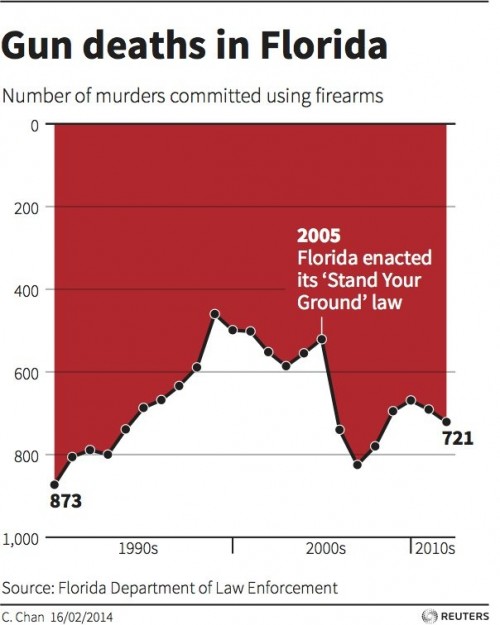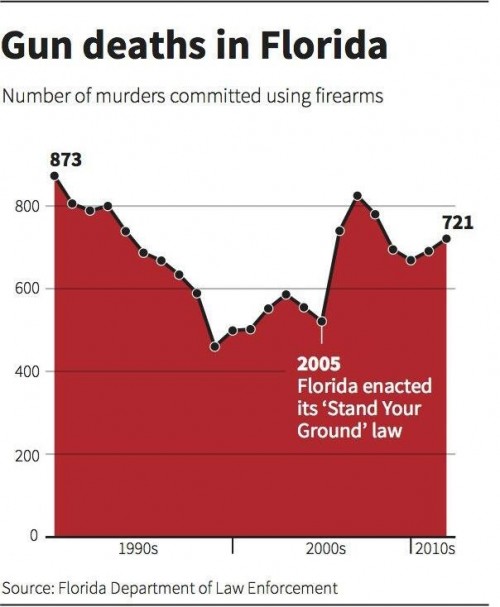The tasty sweet tears of rage and frustration. Oh, I am so enjoying the current flood of email into my in-box. It’s not fair to keep it to myself, so I thought I’d share a sample.
Young Republicans
Sad little man, calling kids names . . . There is so much more hate and intolerance on the left it simply isn’t funny.
Look below.
Educator???
Professor Myers,
Have you forgotten that it’s your job to help students learn how to think, and not to bias them to think only like you? Also your demonization of those who don’t share your political views, as shown by the words you choose to describe them (“assholes”), reflects poorly on your education. Scientists never justify their work via fallacious Argumentum ad hominem, which is usually based on emotion, not on facts.
The only reason someone wants to destroy or suppress written information that doesn’t echo their views is that they don’t have any facts to refute it. If you strongly believe in your political views, why don’t you participate in moderated debates and let the students decide for themselves?
You haven’t read the North Star, have you? I’m not the only one shocked at the overt racism in it.
Scientists also do not deny facts clearly in evidence. The students behind the racist rag are young assholes. Are we seriously supposed to debate whether black people are discriminated against? Really?
yes to ends justifies the means
Those on the left these days clearly believe the “ends justifies the means” for liberals everywhere think nothing of physically attacking and physically destroying anyone and any idea they “think” is wrong. Free speech was once an ideal of those on the left – no longer.
It is. But you do understand that free speech has limits, right? Or why are you upset with me exercising my free speech…which is all I’ve done?
Tolerance and diversity.
You sir are a hypocrite. You call conservatives assholes. And conservative youngsters assholes in training. You also compared the north star paper to KKK And yet you have the hypocrisy to say ” treat their scattered papers as hate-filled trash and dispose of it appropriately. ” you are an asshole, communist who preaches hate. You liberals assholes preach tolerance and diversity, and yet you have none for anyone who disagrees with your opinion. You might not be criminally liable for the theft of the North Star papers but you sure as hell are personally responsible. You are not only a pathetic pitiful excuse for a human being but also a scum sucking, hate preaching hypocrite. How many young men and women have you brainwashed by preaching hate and intolerance? Haters like you should not be allowed anywhere near a classroom. People like you have destroyed this country. After listening to you insult people with differing opinions and attacking freedom of speech it’s obvious you would be much happier in a country like North Korea. I can only pray that the university of Minnesota Morris shits cans you out of your cushy little job in academia. And then you would actually have to work for a living. Until such a blessing to humanity occurs you need to shut your fucking mouth until you learn tolerance for other people.
Shut up until you learn to tolerate speech you disagree with!
I think we’re done here.
You are a BITCH!
hey you little man…grow up! what a sad excuse for a human you are…you and OBAMA are both pieces of shit!!!!!!!!!!!!!!!!!!!!!!!!!!!!!!!!!!
Did I just get compared to the president of the United States?
I looked up your picture – that’s what an intolerant bigot looks like
Typical of your ideology – free speech only for those who comply with the bigots.
Wait…the conservatives you’re defending are white racists, and I’m the bigot? OK.
Tolerance
Just read a story about how you view conservatives as ‘ass-holes’ and that you think that people should not read the campus conservative newspaper at your school.
Nice job being tolerance of people with opposing points of view from your own. Good example to set as an educator.
I guess you are just another one of those liberals who is for free speech as long as it agrees with your views.
And if teaching does not work out for you maybe you might try a different line of work – IRS or BLM agent might be perfect choices for you.
Conservative viewpoints: fine. I might disagree with them, but I agree that they should be allowed to be expressed. Why are you so freely associating “conservative” and “racist”?
Liberals and their hypocrisy
Mr. Meyers:
I saw your comments online regarding conservatives, republicans and Fox News, etc….
You do have a right to say what you think, but to call conservatives “uneducated”, when you must resort to profanities when describing them, shows who lacks an educated mind.
I find it alarming how liberals like yourself feel they have the right to say and do whatever is necessary to advance their views, but won’t tolerate someone that disagrees with them.
Again, another person who hasn’t read the North Star. I’d really be interested to hear from somebody who had, who still wants to claim it as a voice for conservatives.
U
U are on the wrong side of history and life. U must Undo the terrible wrong committed when you were born. U must for the sake of justice abort yourself immediately for Barack’s glory. Be a hero, do not delay.
That doesn’t even make sense.
Piece of shit
That’s all he had. A subject line, and then he was too intellectually exhausted to continue.
Asshole
You call conservatives assholes but you are the one filled with hate.
I didn’t use Trayvon Martin’s dead face as a prop in a crusade against racial diversity.
Being an Alumni of the U of M…
I am 100% offended by your actions against the Morris North Star paper!!!
I read about it initially from this link:
http://www.foxnews.com/opinion/2014/04/15/did-professor-advocate-censorship-conservative-student-newspaper/
Your criticism of the paper apparently is that it was mocking minority students…Well, you sir went way beyond mocking!!!
Some day I wish folks like you would look in the mirror…I can dream, right?
I won’t return your hate speech with more hate speech (so I won’t call you names), but with a prayer that you can find it in yourself to rise se to a level equal to your education.
I went beyond mocking? The response to that paper has been universal: it is deplorable.
Twerp
So, you think you’re pretty smart!? From the things I’ve read, it sounds like you’re well on your way to setting your pompous liberal ass out for a good kicking. Do a favor for the rest of us in the real sciences – keep your frickin’, misguided political opinions to yourself!
Will you do the same?
ASS HOLE DEMOCRATS
HEY YOU PIECE OF SHIT….CALLING REPUBLICANS NAMES ..NOT VERY NICE…YOU ASSHOLE….CANT WAIT FOR THE REPUBLICANS TO TAKE CONTROL OF THIS COUNTRY AGAIN…OBUMMER HAS REALLY FUCKED IT UP…AND YOU ..YOU PIECE OF SHIT…THEY SHOULD FIRE YOUR ASS…17 TRILLION IN DEBT….NO ONE IN THE WORLD IS AFRAID OF THE U.S. ANYMORE..OBUMMER KEEPS SAYING YOU CROSS THE RED LINE..AND BOY ITS GOING TO BE TROUBLE..EVER COUNTRY OUT THERE JUST LAUGHS AT THE U.S….CANT WAIT TO GET THE REPUBLICANS BACK IN CONTROL …I GUARANTEE YOU PUTIN WOULD NOT BE DOING WHAT HE IS DOING IF WE HAD A REPUBLICAN PRESIDENT WHO IS NOT AFRAID OF HIS OWN FUCKIN SHADOW…..IN THE MEAN TIME ASSHOLE BACK OFF THE YOUNG REPUBLICANS…BECAUSE YOU TIME WILL COME..HAHA…
There’s always one who loves his capslock key.
Why don’t you move to a country that suits your totalitarian ideological worldview?
It’s shameful that you and your pathetic so-called ‘university’ share more in common with Herbert Marcuse and Gramsci than with the intellectual tradition of western liberalism. It’s shameful that your opinion of democracy and liberty is virtually indistinguishable from the perfidious view of Recep Tayyıp Erdoğan. What you have in common with the aforementioned is an illiberal, intolerant, and tyrannical ideology advanced, in Machiavellian and Orwellian fashion, under the label of democracy and liberalism. Once liberalism has served its purpose, facilitating “the long march,” the left’s true ideological bent towards totalitarianism is revealed. And you are quite the exemplar, perched in one of the institutions Gramsci targeted, a western university, preaching a jihad against free speech and intellectual freedom, the very vehicles that delivered you and your ilk to a position of influence in society.
But just think that there are countries fully committed to your worldview. You could move to Cuba, Red China, Venezuela, North Korea, Russia, and Belarus, to name a few. You could trash all manner of authentic, classical western liberal literature and, instead of being taunted, you could be praised and revered by your fellow travelers on the “shining path.” Imagine yourself in the middle of a frenzied crowd of kindred “souls” (yes, we know your religion is atheism) in some Middle East anti-western Shangri-La burning an American flag and a cheap Chinese reproduction of the U.S. Constitution. A true left-wing oasis. No dissent. Lot’s of stupid and pliant drones ready to receive your illiberal instruction and light up the night sky with huge bonfires of western literature. Come to think of it, it’s a lot like the University of Minnesota-Morris.
There’s also always the pretentious one, who drags out obscure figures from history and calls atheism a religion and while complaining about defending free speech, wants me to move to North Korea.
A different view point
Has any conservative ever provided a view point that was contrary to yours yet remained valid in your eyes? If yes, how far off was it? If no, what made yours the most valid? Must students always agree with your viewpoint or do you encourage them to do the research, and reach their own conclusion?
Libel and dead black boys are not points to be argued.
I’m sure there’ll be more. It’s not very interesting, though: they clearly haven’t read either what I wrote, or what the North Star wrote, and are just parroting the twists Fox News made…which actually justifies my comments about Fox News.



